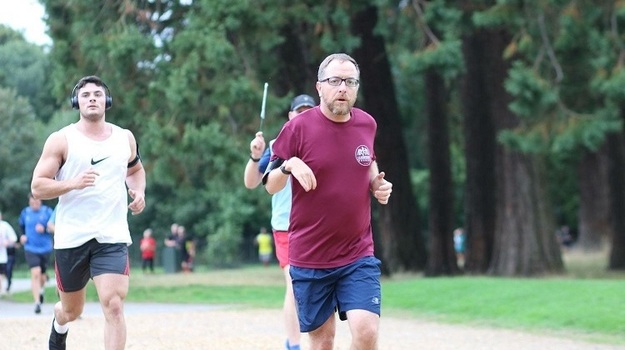Mental health and... physical activity

So, it's that time of year when the gyms are bulging, and people are out pounding the pavements full of good intentions and new fitness goals.
Most people understand that physical exercise is good for them for a whole host of reasons: it helps maintain a healthy weight, keeps your heart and lungs healthy, and reduces your risk of developing some chronic illnesses.
But there's growing evidence that physical activity keeps you mentally healthy too, improving mood, reducing stress and increasing self-esteem. A Department of Health report called Start Active, Stay Active said regular exercise reduces the risk of depression and anxiety and can help not only prevent mental illness, but also improve the quality of life for those with common mental health problems.
Some research even suggests physical activity can be as effective as medication in the treatment of mild to moderate depression, and without any of the associated side effects. Even for those with a more severe mental health diagnosis, exercise can help manage symptoms alongside medication prescribed by a doctor, or other treatment options including talking therapies.
Current recommendations suggest adults should aim for 150 minutes of moderately intense physical activity a week; that's any activity that increases heart rate and breathing rate and makes you feel slightly warmer, in blocks of at least 10 minutes.
It's important to find an activity that works for you (and that you like!), start slowly and build up. Your GP may also be able to offer an exercise referral if you have been diagnosed with a mental health or other medical condition and could use some help to get started.
"Exercise alone isn't enough for someone with severe depression," says Dr Michael Craig Miller, assistant professor of psychiatry at Harvard Medical School, "but for some people it works as well as antidepressants."
How exercise helped me
Lionheart's mental health ambassadors are all RICS professionals who have first-hand experience of mental health issues. We asked some of them to share how being physically active helped them manage their symptoms and conditions.
Stuart Howison
"I met some great people through the club including lots of people who also suffer with mental health issues, so it really makes me realise I am not alone.
"I now run 3 or 4 times a week. Other than being generally much fitter and helping an old back injury, in terms of mental health running for me is a form of mindfulness; it helps me clear my head of any negative or unhelpful thoughts I may be having, or process things if it's been a busy or stressful day."
James Crawford
"The general sense of wellbeing after exercise is fantastic and so well proven. I've found when my mental health is poor my motivation drops massively and my willpower dries up. The routine of exercise kickstarts my drive and gives me the energy to do things, which in turn makes you feel better. Also, I sleep much better after exercise, which is critical to good mental health.
"The correlation between obesity, sedentary lifestyles, poor sleep habits, social media and a deterioration in the mental health of all age groups seems beyond question. The key is to wake up one day and begin to make small changes which will eventually have a material positive benefit."
Kirsty Harvey
"These days I run once a week with a running club around a local National Trust property, which is a great way to satisfy my love of being out in nature with getting some exercise. Lately I have also joined a Zumba class. My co-ordination is dreadful, but the combination of upbeat music and laughter when either me or my friend end up facing the wrong direction is well worth it! I also love gardening, the more active the better.
"I find exercise stops me thinking about work, as I focus on what I am doing so I'm more relaxed. People may automatically think of exercise as going down the gym, but there are so many other ways of incorporating something you like into your life. I personally don't find things like yoga relaxing, as I can't switch my mind off, whereas give me a spade and a patch of soil and I can relax for hours."
- Find out more about LionHeart's mental health ambassadors
- Feeling low and need support? Call our helpline free on 0800 009 2960

